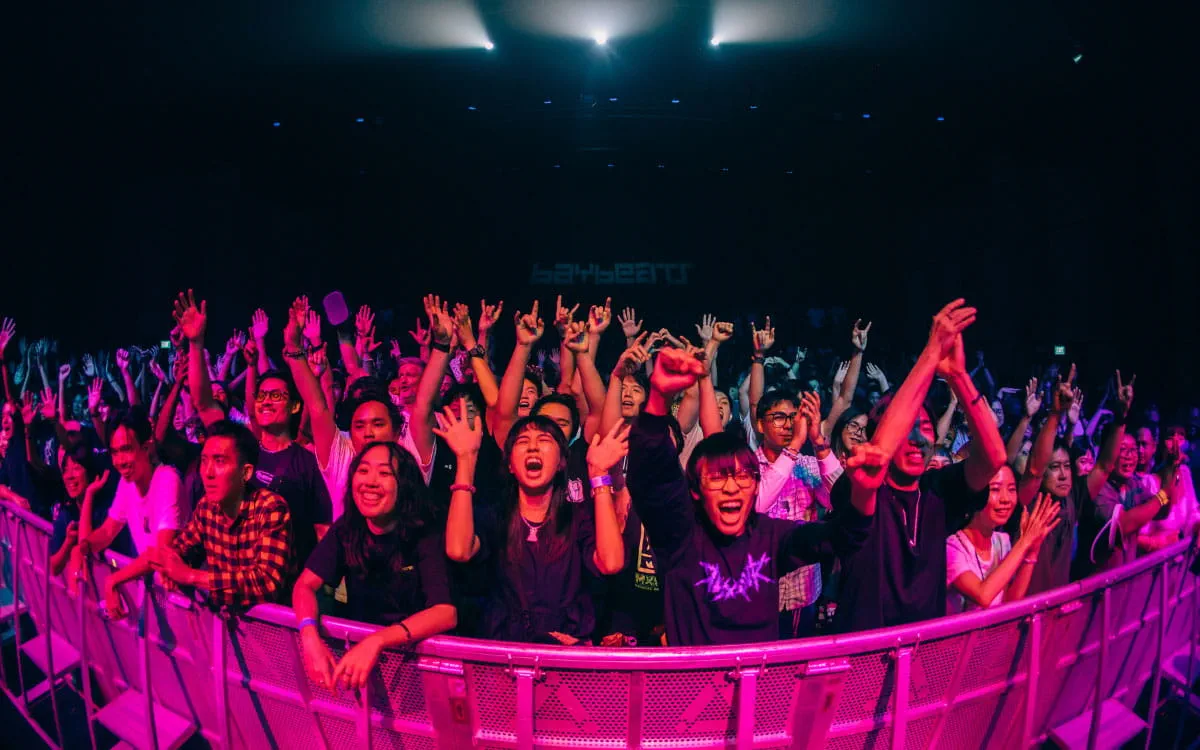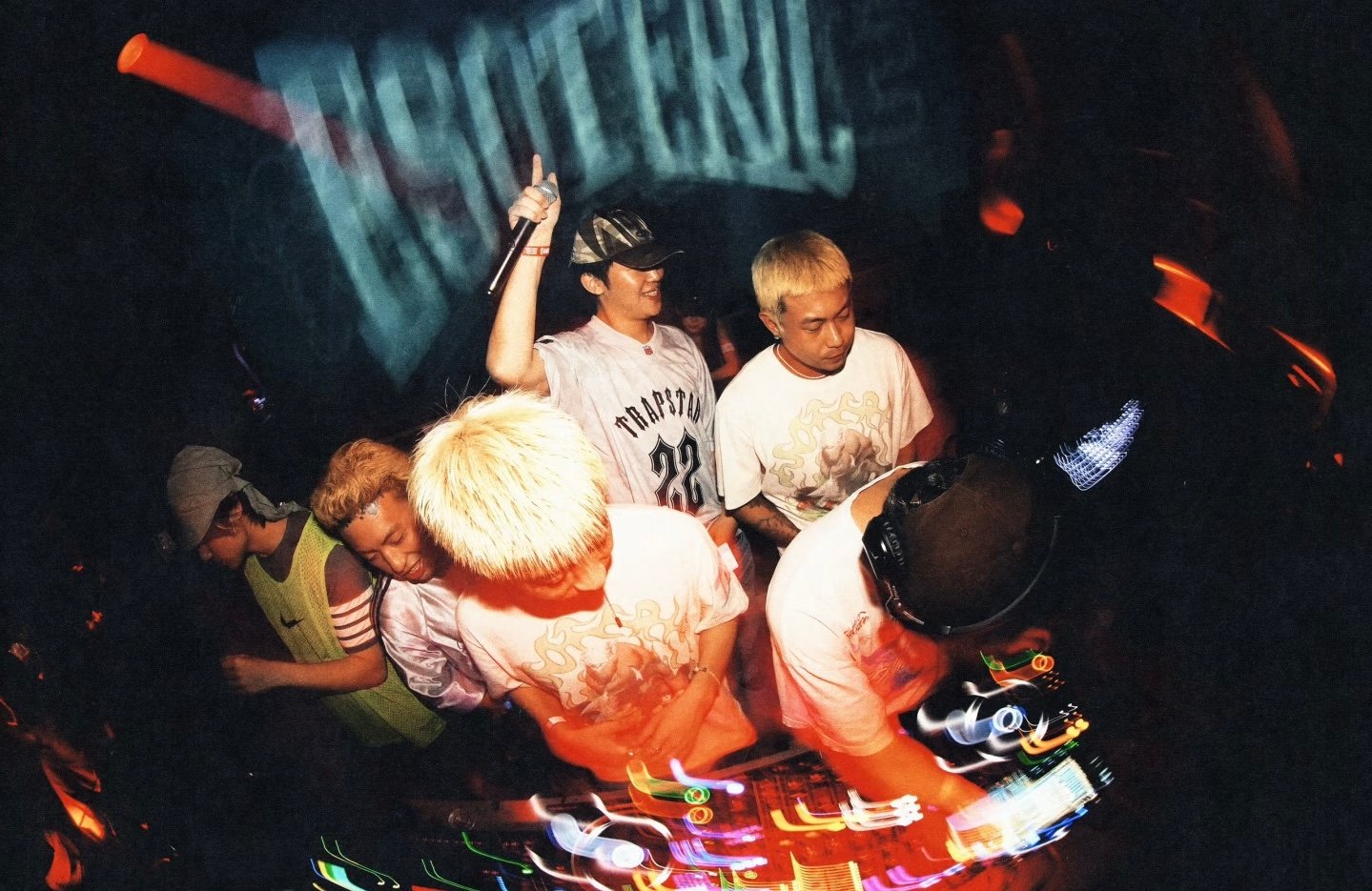At Fuji Rock, an annual rock festival in Japan, Jerry Hu marveled at the view of the small town of Yuzawa from the tram ascending to the peak of Mount Takenoko, where a stage was set up in the lush greenery. It was his first time attending the festival. From July 26 to 28, he averaged 25,000 steps per day, trekking from stage to stage in the rain and excruciating July heat. It felt like military training. But when you are surrounded by music and cheers from fellow fans, you surrender yourself to the shared exhilaration. That’s how he felt when the English rock band Oasis performed on stage, as excitement swiped away his exhaustion. To come to Fuji Rock, 40-year-old Hu had to take a 5-day leave from his tech job in Shanghai.
“Three days at the festival felt surreal. Dancing, drinking, music — I didn’t need to worry about anything else. It’s a different lifestyle, so different from my meeting-after-meeting kind of work life,” he said.
Hu is one of many Chinese flying overseas for music festivals, part of a wider travel boom in the post-pandemic era. Today, Chinese music lovers who value a YOLO lifestyle over 996 work culture are jetting off to America for Coachella, Hong Kong for Clockenflap, Japan for Fuji Rock, and Thailand for Rolling Loud. Traditional travel destinations no longer satisfy the increasingly adventurous spirit of some young Chinese people.

As such, concert and festival tourism has become a growing trend. Trips that could be weekend getaways often turn into extended vacations, with many fans arriving early or staying beyond the event to explore local attractions. The phenomenon isn’t exclusive to China: almost 70% of respondents in an Expedia survey said they are now more inclined to travel outside their hometown for a concert, and 44% indicated they would attend a concert as an excuse to explore a new destination.
To the adventurous soul, this multi-pronged approach adds a dynamic and fun cultural experience to conventional travel, making a new place even more appealing.
“From music festivals to exotic adventures, Chinese travelers are increasingly seeking more than just a typical gateway,” commented Jane Sun, CEO of Trip.com, during the company’s 2023 Annual Report earnings call earlier this year. “They are craving immersive cultural experiences, thrilling adventures, and music euphoria.”
Taylor Swift’s Singapore concerts in March 2024 provide a prime example of concert tourism in Asia. According to ChannelNewsAsia, the Swiftie Effect led to a 30% spike in regional demand for hotels and flights during the star’s six show run in Singapore. Economists estimate that Swift’s concerts in Singapore may have contributed up to 500 million Singapore dollars to the economy, approximately 372 million USD.
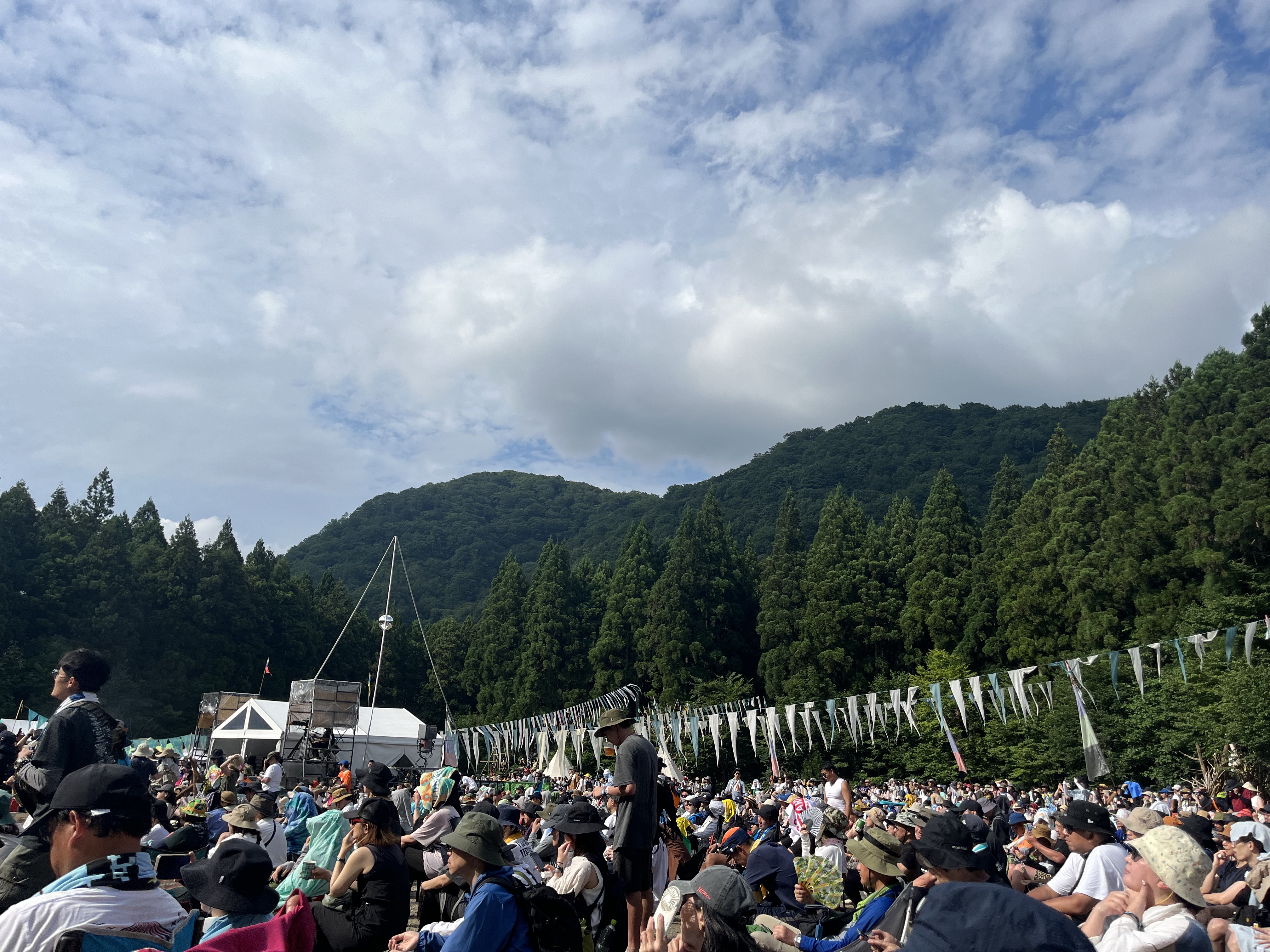
In the post-pandemic era, music festivals worldwide have experienced a revival. On the surface at least, music festivals are thriving in China. As reported by Sixth Tone in July 2024, a rising demand for social connection and escapism has led to a resurgence in music events across the country in 2023, with the number of events more than doubling the previous peak recorded in 2017.
However, Chinese music enthusiasts are increasingly dissatisfied with local festivals.
Tickets are increasingly expensive and lineups often feature the same overexposed performers, who have been pushed by management agencies. One incentive for Chinese festival-goers to travel overseas is the greater value offered by more diverse, international lineups.
Frustrated with the repetitive commercial lineups at Chinese music festivals, Hu flew to Fuji Rock to see bands like Oasis. “International artists barely come to mainland China for performances. Fans like me have to travel overseas for them,” he explained.
For Shelly Luo, Fuji Rock is the physical manifestation of utopia. With 15 years of experience in China’s music industry as a manager, the now 39-year-old first attended Japan’s Summer Sonic in 2016 and has been flying to Japan for festivals since then. Over the years, she noted a significant gap in musical development between China and other countries — not just how certain Chinese artists clog up concert and festival lineups here, but also how fans’ musical tastes can be broader elsewhere.
Luo brings up a recent performance by Taiwanese artist Hsuan Huang (aka Yellow) on popular singing competition show Singer as an example. Huang’s experimental blend of jazz, soul, folk, and R&B, delivered with a vaudeville flair, didn’t connect with viewers, who left comments online labeling his music as eccentric and bizarre. For Luo, this reaction reflects a preference among Chinese audiences for mainstream music over more innovative and avant-garde styles.
“Going overseas for music festivals is the best way to keep updated with music development and get a better sense of music taste across the globe,” she said.
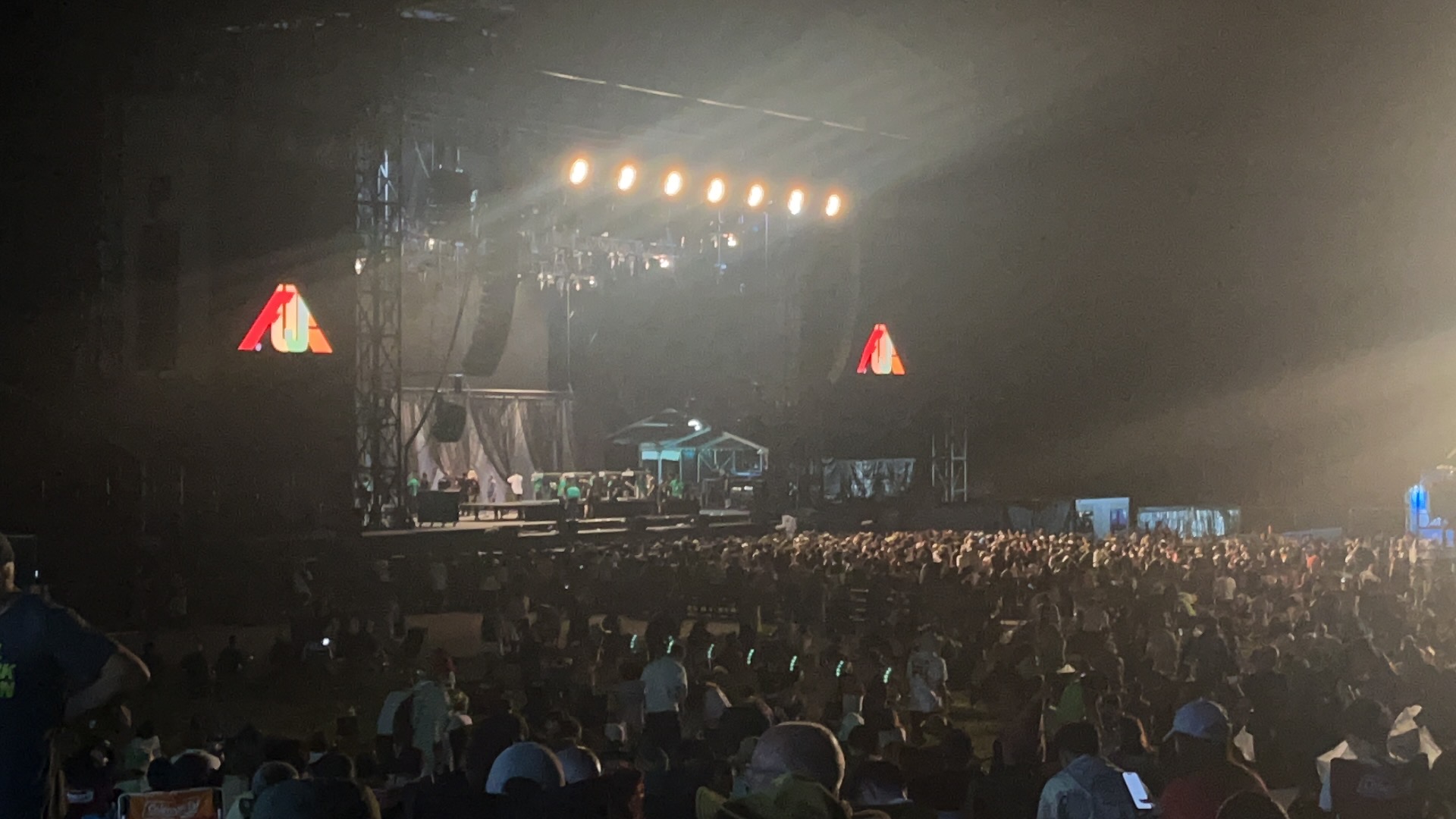
In fact, the willingness to travel farther encapsulates a shifting attitude toward office life among white-collar workers in China. From “involution” to “lying flat,” there has been a surge in anti-hustle sentiment as more young people prioritize their personal lives over work. Sarcastic terms like “社畜” (corporate slave, shèchù),” “牛马” (livestock, niúmǎ), and “打工人” (laborer, dǎgōngrén) mock working life, and resignation parties celebrate the end of employment. And for some, flying overseas for a music festival is the perfect way to make the most of their meager time off.
“Work-life balance is a myth in China, so you have to create your balance,” said Queenie Fan, a 26-year-old woman who works in marketing in Beijing.
Going to music festivals is her way of finding balance. In April 2023, Rolling Loud, one of the largest hip-hop festivals in the world, took place in Pattaya, Thailand, featuring big-name artists like Travis Scott, Cardi B, and Jay Park. Like many others, Fan took days off from work to attend this event. Despite having to respond to work emails during her leave, she still thinks going to the festival was worth it.
“Thailand is visa-free, costs are relatively low, and the ticket price was reasonable for such a lineup. I can loosen up at music festivals and fully immerse myself in a sense of freedom,” said Fan.
Indeed, it isn’t only music that is captivating Fan and other travelers. Inclusive festival experiences are also a draw for Chinese fans.
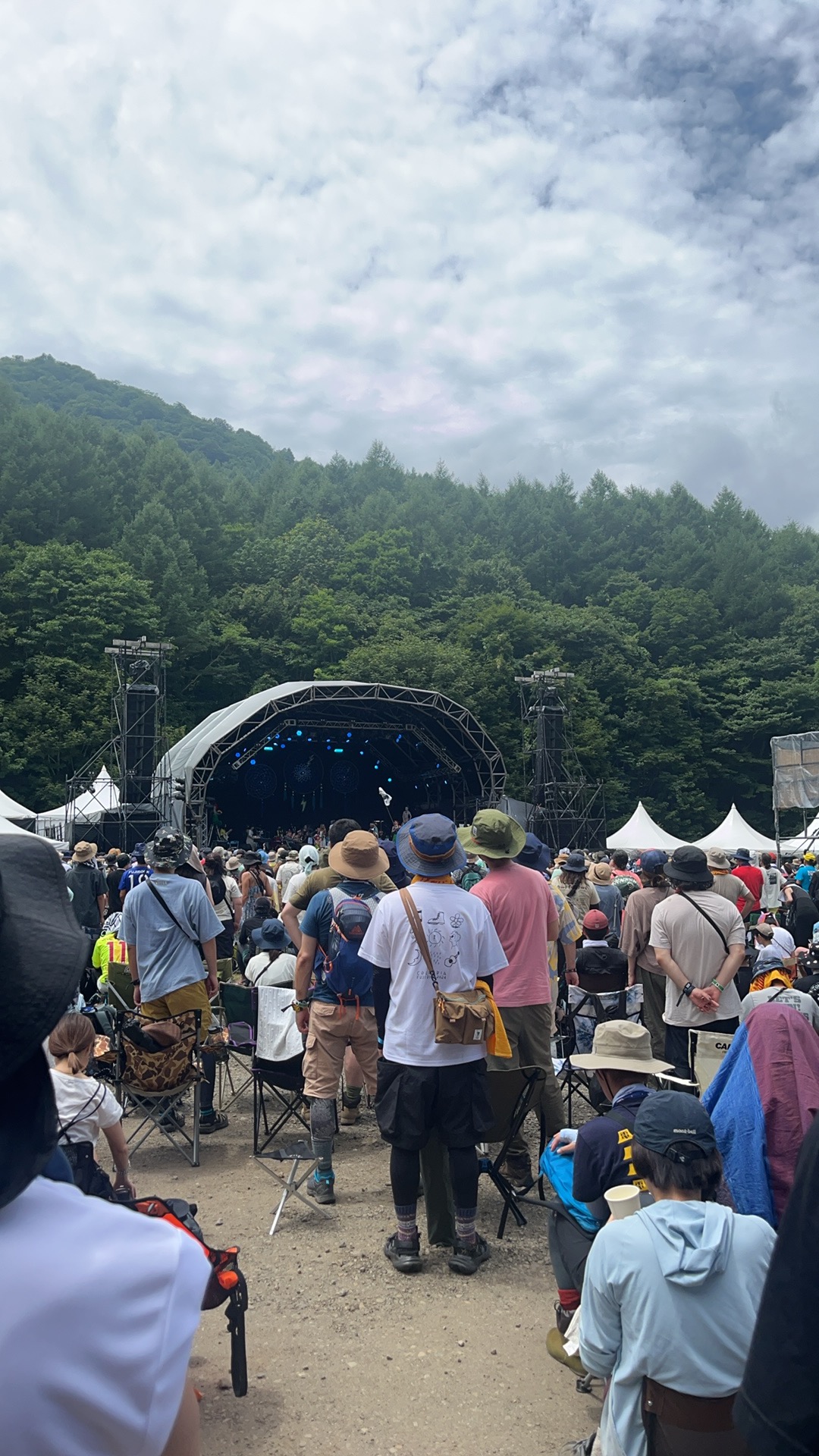
At Fuji Rock, Hu was surprised to see that music festivals could be a family activity, with playgrounds for children. Although, in his words, he’s “not young anymore,” he felt that age didn’t determine anything at this music festival, where he encountered people of all ages — from kindergarten-age kids to fellow music fans in their late 30s or early 40s.
Hu also attended Clockenflap in Hong Kong last year, where he noticed non-binary bathrooms at the festival site. As a dedicated music festival attendee for over a decade, he had never encountered such inclusivity at a festival on the Chinese mainland. This year at Fuji Rock, he was struck once again by the presence of genderless bathrooms.
“In my opinion, the best music festival is the one that includes people of all ages and backgrounds. Everyone should feel comfortable, enjoy, and entertain themselves,” he said.
Banner image by Haedi Yue.




